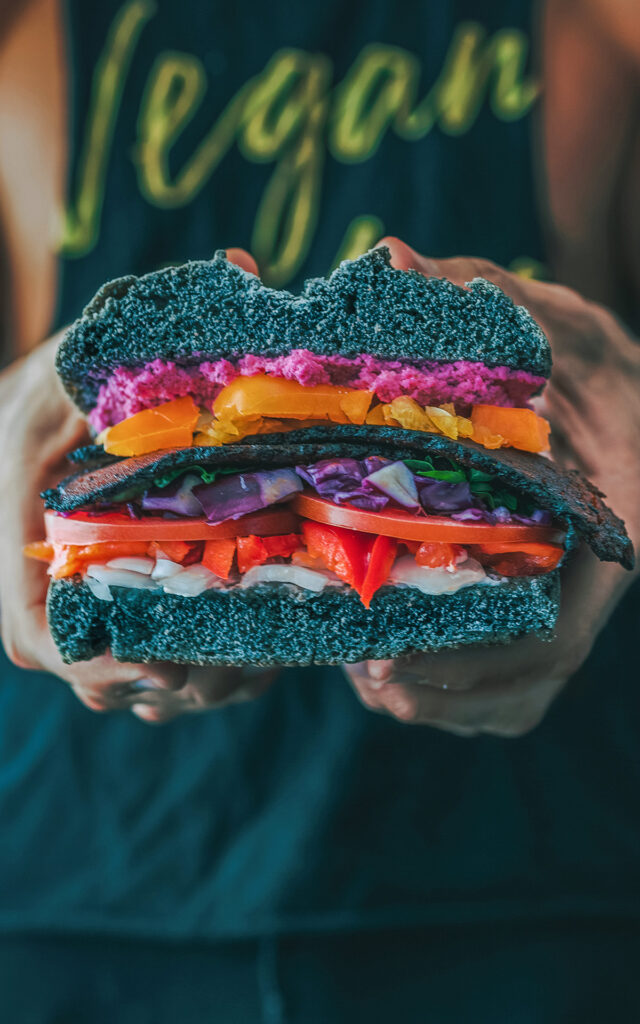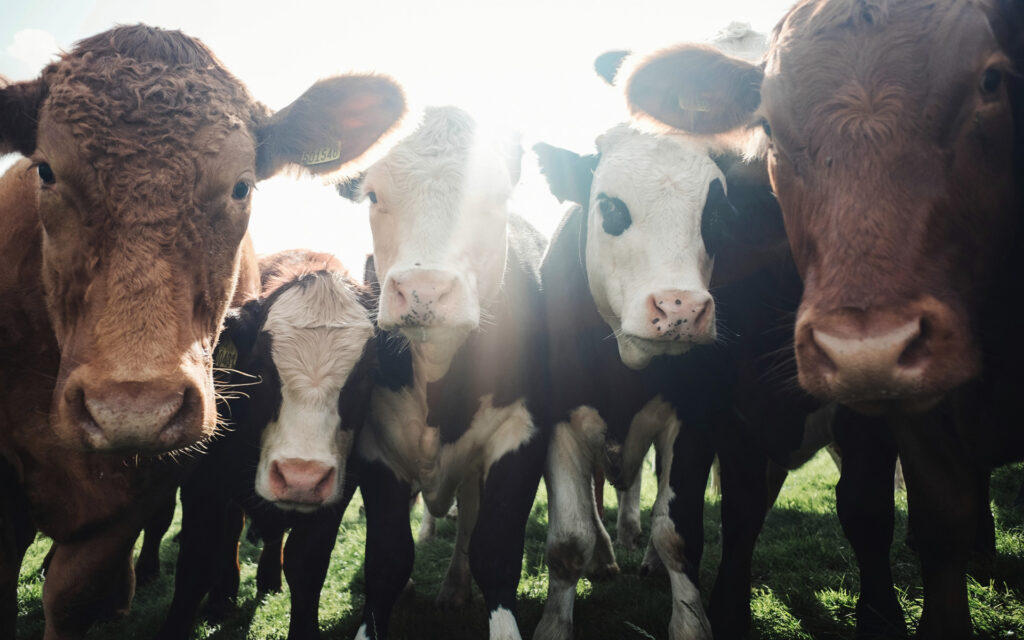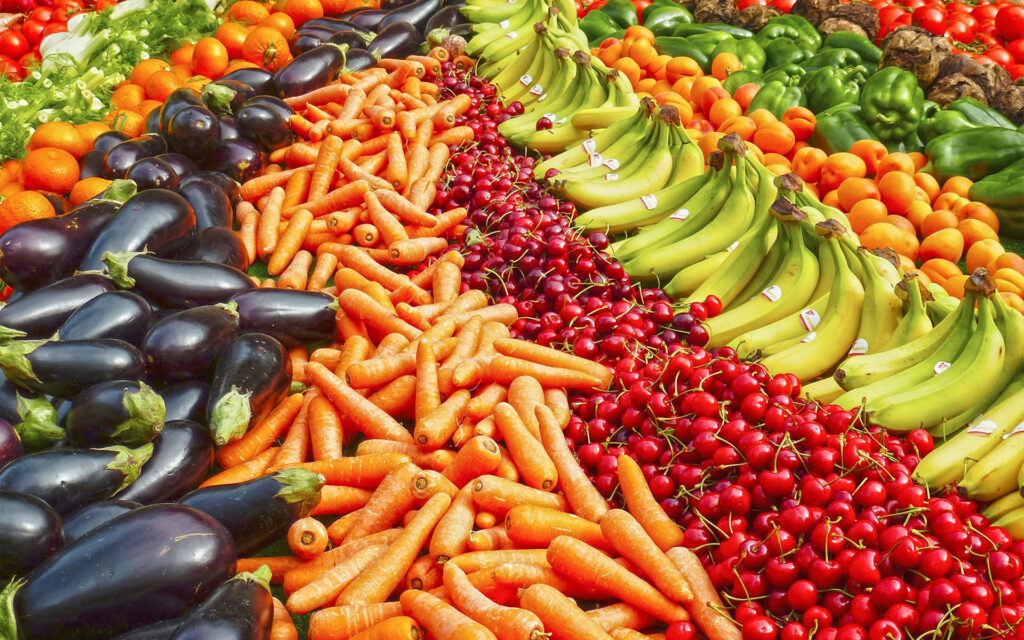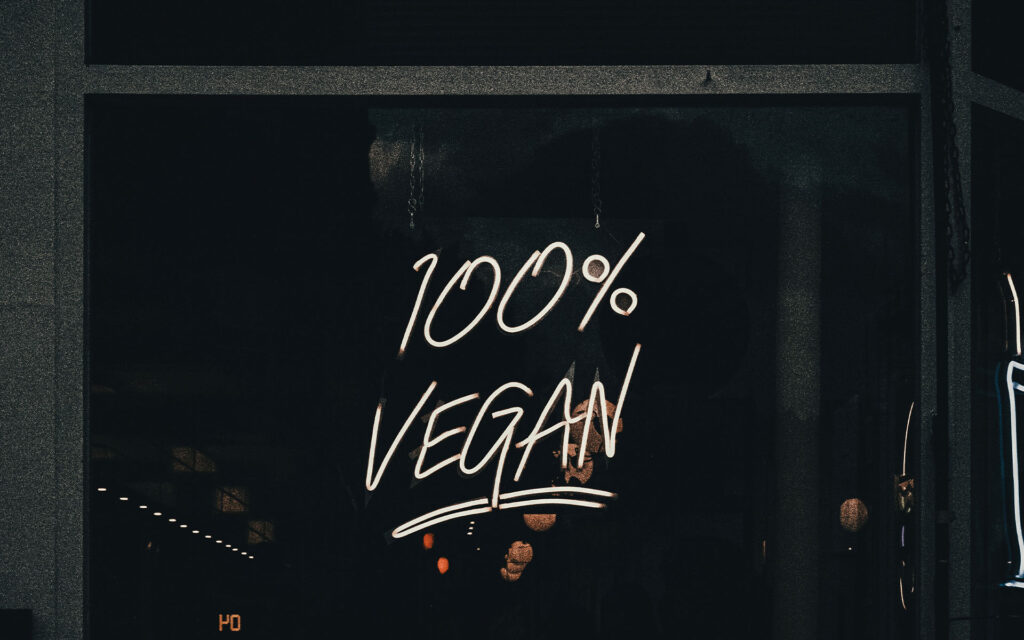It has potential, sonority, appeal, and many shades of debate poured in its honor. We’re talking about the vegan industry and its vegetarian environment, that mercantile world dressed in ecological respect.
The critical gaze of a vegan industry
That vegan food has been gaining ground in the food world in recent years is a fact. And proof of this is the increase in global sales of plant-based meat, which reached $4.2 billion in 2020, according to Euromonitor International analysis. This represents a staggering 24% increase. With such figures in front of us, it’s impossible not to talk about the vegan industry properly.

What is the vegan industry?
Understood as advocating for healthy and sustainable options, while demanding and applying greater awareness of the impact of processed products, veganism characterizes itself by putting an end to the use of manufactured elements and those linked to animal exploitation, as well as the services derived from it.
Outcome? The production and promotion of a business activity free from all ingestion and exploitation, at least in theory. It is a practice in which not only food is included, but also cosmetics, fashion, and even tourism. Not in vain is the vegan diet the one that most helps to take care of the planet, it seems. A model of animal respect whose success is based on a single word: ecology.
We’re talking about a conservationist commitment that for many of its consumers is also a lifestyle. A stance that guarantees quality and sustainability, while at the same time injecting life into the economy. All of this seasoned with sustainability and a unique ethics, grounded in the preservation of known fauna first, as well as the environment second.
After all, ensuring that the food they are going to buy and consume does not contain ingredients of animal origin is the number one rule of every good vegetarian and vegan; who also ensure that such ingested products have not been tested on animals. And it’s not just a few vegans and vegetarians willing to pay more in exchange for high-quality items that have been produced in the most sustainable ethical factory.

What is the profile of these consumers?
We’re talking about people who remain loyal to brands that share their conservationist values, inspired by the belief that such companies offer eco-friendly products wrapped in quality. They choose food and clothing, travel and leisure that has achieved undeniable social presence, as evidenced by the report ‘The Global Vegan Food Market 2023-2028.’ An exponential growth that reflects that the vegan industry is already a trend. The train of a notable change to which several meat giants have already joined, extending the wave of their products to the vegetarian shore. The list of giant promoters in the vegan and vegetarian industry is long. From Beyond Meat and Danone, to Vitasoy and Hain Celestial, passing through Sun and Amy’s Kitchen and even Nestlé.
But all that glitters is not gold, and the vegan industry is no exception!
Within an intention of salvation and preservation of the planet, the vegan industry remains a more respectful option, still, at least when compared to animal-based food.
In fact, from a more realistic point of view, the production of animal-based foods does multiply the environmental impact, going against vegetables. It’s not difficult to understand that obtaining a single protein from meat requires companies to put more effort into their activity, at least at the manufacturing level. This difference contrasts significantly when obtaining a plant-based protein. More effort and higher production, as a consequence, end up spewing a greater amount of polluting gases into the atmosphere.
In fact, experts like Ed Winters, author of “This is Propaganda (and Other Lies from the Meat Industry),” recommend and encourage transitioning to the vegan industry and its vegetarian diets, promising to be able to contribute more effectively to the sustainability of the planet on one hand, as well as improving one’s own health on the other, by ending up eating more fruits and vegetables in the process.
Within the pages of this iconic book, it makes clear that the power to contribute to transforming the world lies in the choice of what to eat.Its lines, delving into farms and slaughterhouses, ecological ideas, and animal rights, do not hesitate to explore the most common ways that support the current system of animal farming.

Crucial points
Among the lines of this report, based on “The Climate Mitigation Gap”, which gathers evidence of how education and government recommendations are overlooking the most effective individual actions, it becomes clear that, despite everything, veganism is not always synonymous with environmental ecology. And why? Because often this food factory does not show itself to be very respectful to the planet, precisely.
A hypothesis that the researchers participating in the trial presented by the University of Oxford turn into a theory by gathering evidence that not everything vegan is one hundred percent eco-sustainable. For researcher Joseph Poore, a specialist in studying and analyzing the type and degree of environmental impact produced by food, the issue is very clear. “Many fruits and vegetables are transported by air,” alluding to the airplane and the food shipments it carries in its cabins, just as it happens with ships and other transatlantic vessels. “Something that can generate and create higher greenhouse gas emissions per kilogram than poultry meat, for example.” In his view, the most important and essential issue is to be “conscious of everything we consume.”
El punto de vista del consumidor
The Consumer’s Perspective: Associating green with eco-friendly is as erroneous as it is naive. Because within the philosophy of the vegan industry, diets based solely on plant-based foods also have to be transported and expanded across borders and countries, in order to reach more mouths, stomachs, and pockets. We’re talking about those imported fruits and vegetables, indeed, whose transportation leaves behind a trail of emissions and pollution. Something that can certainly be avoided. How? By opting for local consumption first, and then choosing to consume fruits and vegetables that are in season. Of course, overlooking all of this is often very difficult most of the time, a dichotomy that those who consume animal and organic products must also face.
If there’s one thing that experts from both industries, vegan and meat, agree on, it’s in maintaining and reaffirming that the environmental crisis we’re currently facing stems from eating and consuming habits, production, and transportation. A consumerist attitude that echoes in the global use of water, land, and other natural resources.
With a little awareness and a simple exercise of restraint and proximity, emissions of pollution could be reduced to achieve remarkable reductions. It’s a pollution battle that lies in the hands of each of us!
From Poetic Truth to Pragmatic Reason:
The essence of veganism sums up in abstaining from consuming meat, fish, eggs, and dairy. While it’s sometimes becoming a social trend, it fills the mouths of its diners with unhealthy items.
It becomes a trend that increasingly corrupts, moving to the blacklist of unhealthy foods. Unfortunately, the vegan industry has already begun to saturate its dishes with sugars, fried foods, and processed touches. A loss of quality that implies as much gluttony as greed, as much falsehood as materialism. The vegan environment is profiting handsomely, at the expense of imitating meat.
A market bet on imitation that, while it may generate around 24.3 billion euros in profits, according to estimates from the US consulting firm Nielsen, and that’s just by 2026, is increasingly sparking debate around it, especially from a nutritional standpoint. And why?
There’s a risk of plunging the industry into ultra-processed foods, along with vegetable oils, starches, and protein extracts. Instead of emulating and improving upon the good qualities of the meat industry, whose organic and animal-based products contain more quantity and better quality of proteins, undeniably, the vegan industry is becoming saturated with ultra-processed foods.
Like any good philosophy and lifestyle, veganism should be a choice made freely, not imposed from high spheres, especially when it comes with plenty of deceit, global marketing, and cheap populism. What should be considered a necessity, however, is quality veganism, the nutritious kind, based on natural foods, adapting to the original products of each country and region, as well as to the reality of each community, society, and family.

Unveiling the Complexity of Veganism
After all, discussing the vegan industry is to address a delicate issue that goes beyond consuming fruits and vegetables, eating meat and fish substitutes, and not buying eggs and other organic animal-derived foods. It’s a topic whose practice and application do not affect everyone equally, not even all countries, let alone all age groups. And this is indisputable at psychological and social, economic and cultural, purchasing power, and growth and development levels. And this alarm is echoed by a study presented a few years ago by Carnegie Mellon University, whose data provides evidence that vegetarian diets could be more harmful to the environment, including those considered healthy.
Conclusions
It’s better to put an end to the commercial agenda. The vegan industry is better off focusing on presenting itself and truly being balanced, fair, and equitable if it truly wants to become a viable and lasting alternative to meat production, leaving its imitation attempts to achieve a product it theoretically wants to detach from on more secondary levels.
And as they are currently presented, with a market model that is more consumerist and exploitative than rigorous and contentious, both the vegan and livestock industries suffer from the same problem: the tendency towards monoculture. A monoculture that attacks bees, one of the most essential animals in the ecosystem, despite it being hard to believe and unpleasant to hear, leaving them on the brink of extinction, having annihilated more than 90%, as documented by this Foundation.
A monoculture that, worse still, pours heaps of fungicides, herbicides, and pesticides into its process of maximizing crop yields, in order to produce more quantity; on one hand, destroying the soil in the process, and on the other hand, ruining the health of pollinators, creating dead zones with so many physical product residues floating around.
Livestock farming and veganism both lack the same measured and oxygenated initiative. They both carry an explosive and greedy character from which they should free themselves if they intend to survive sustainably over time and, along with them, preserve the climate, the animals, the plants, and yes, also humanity.





